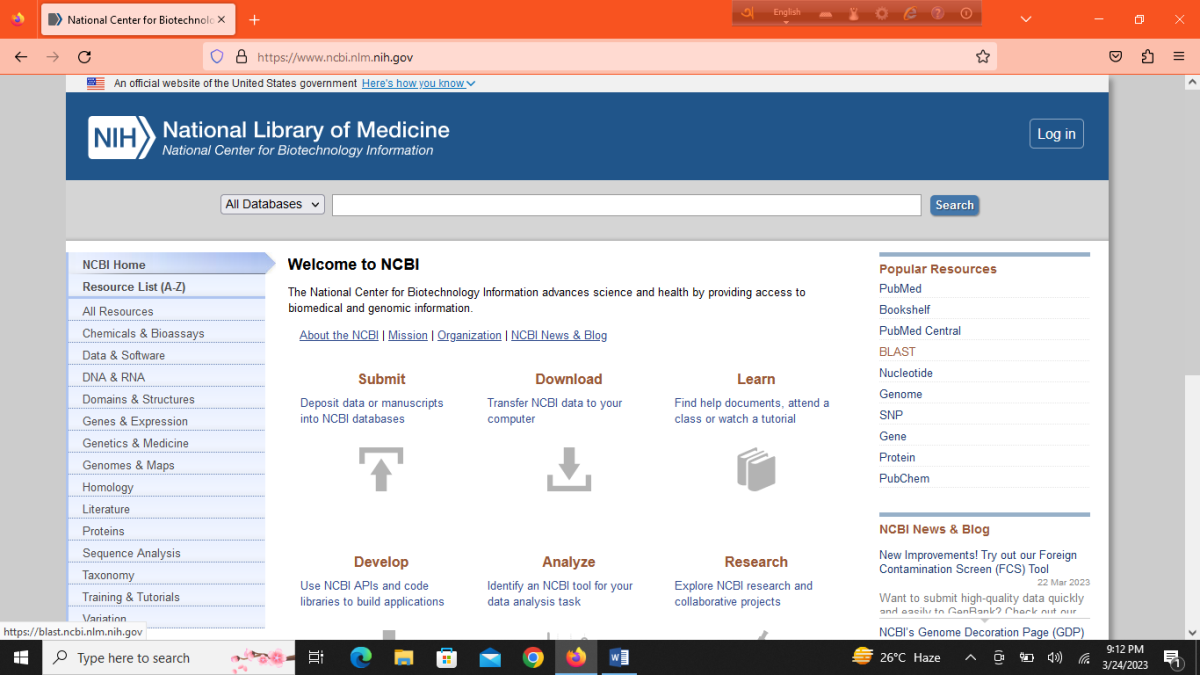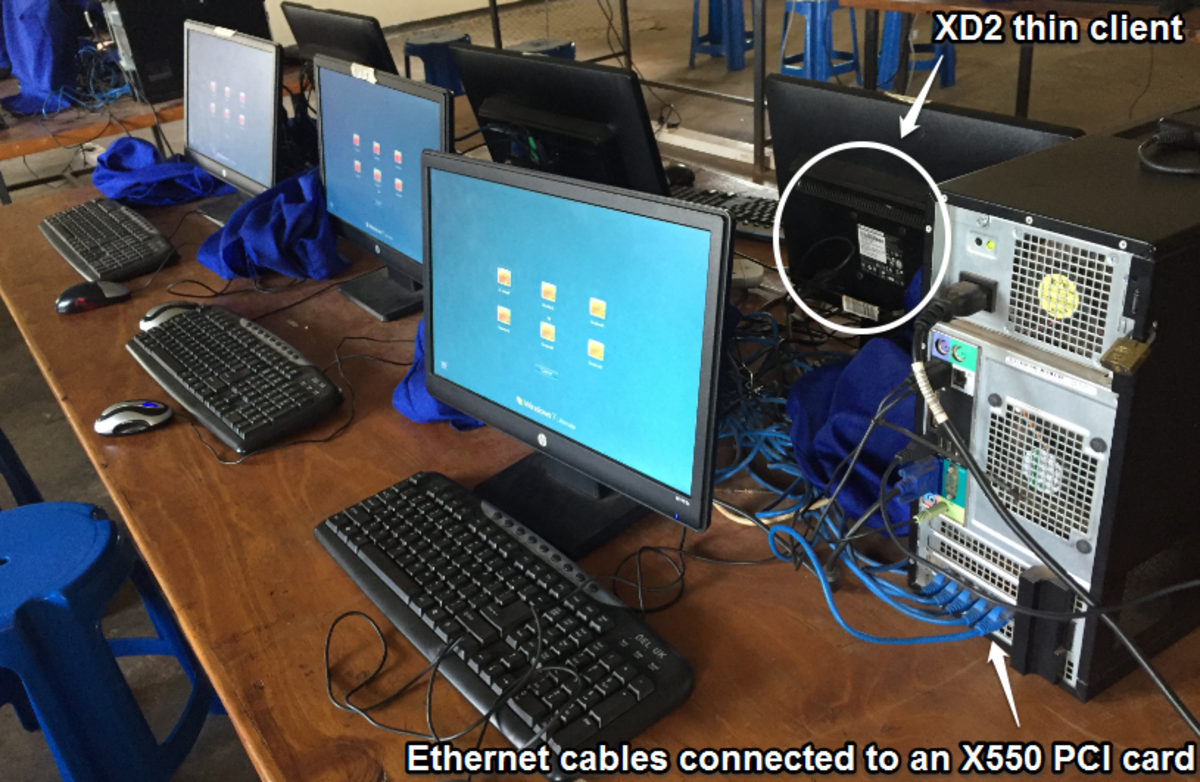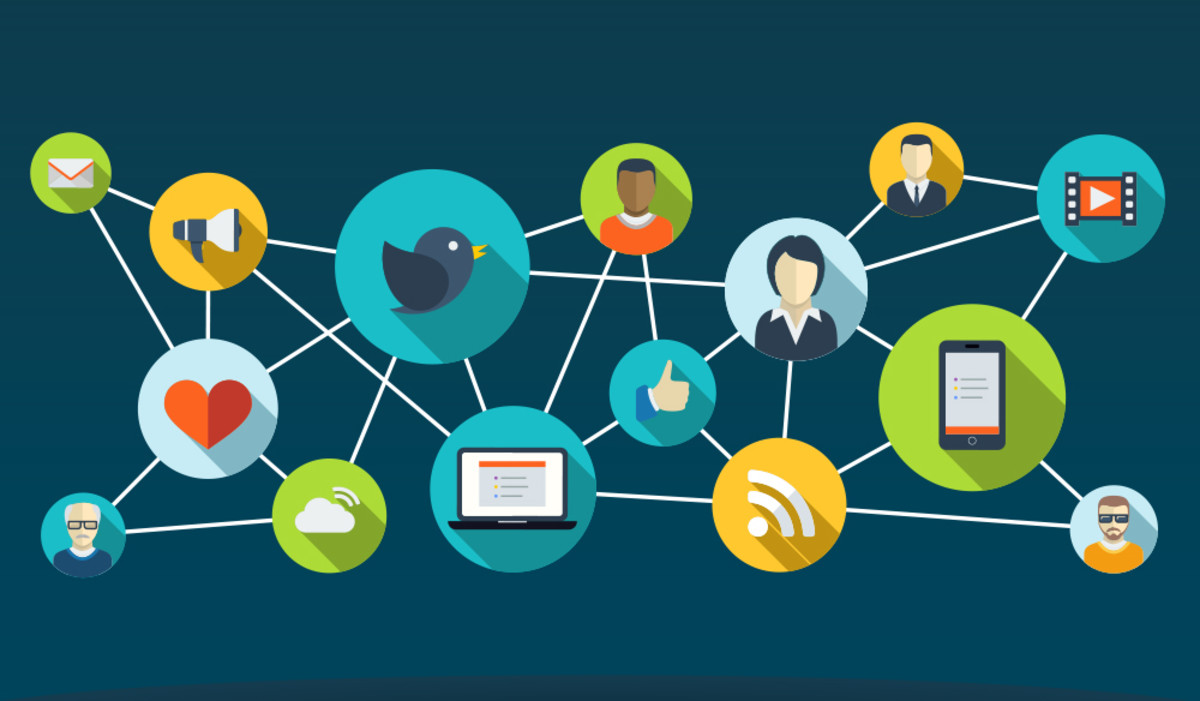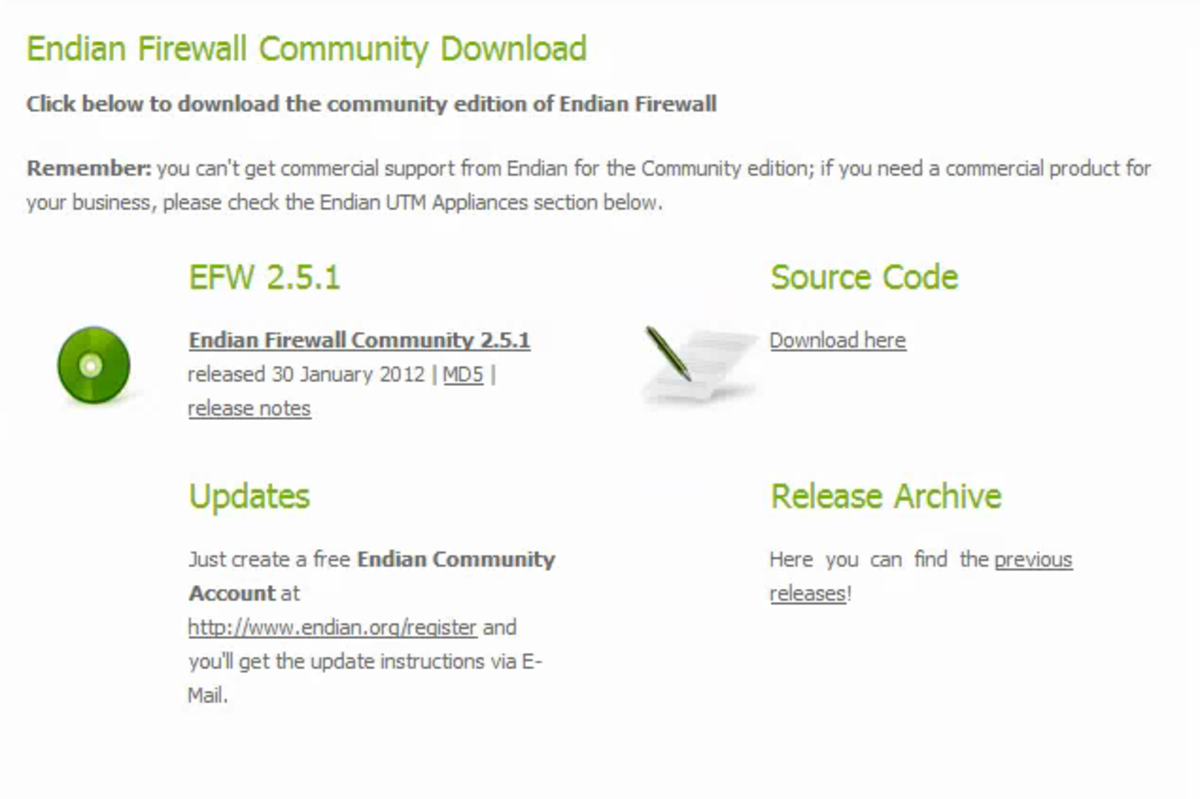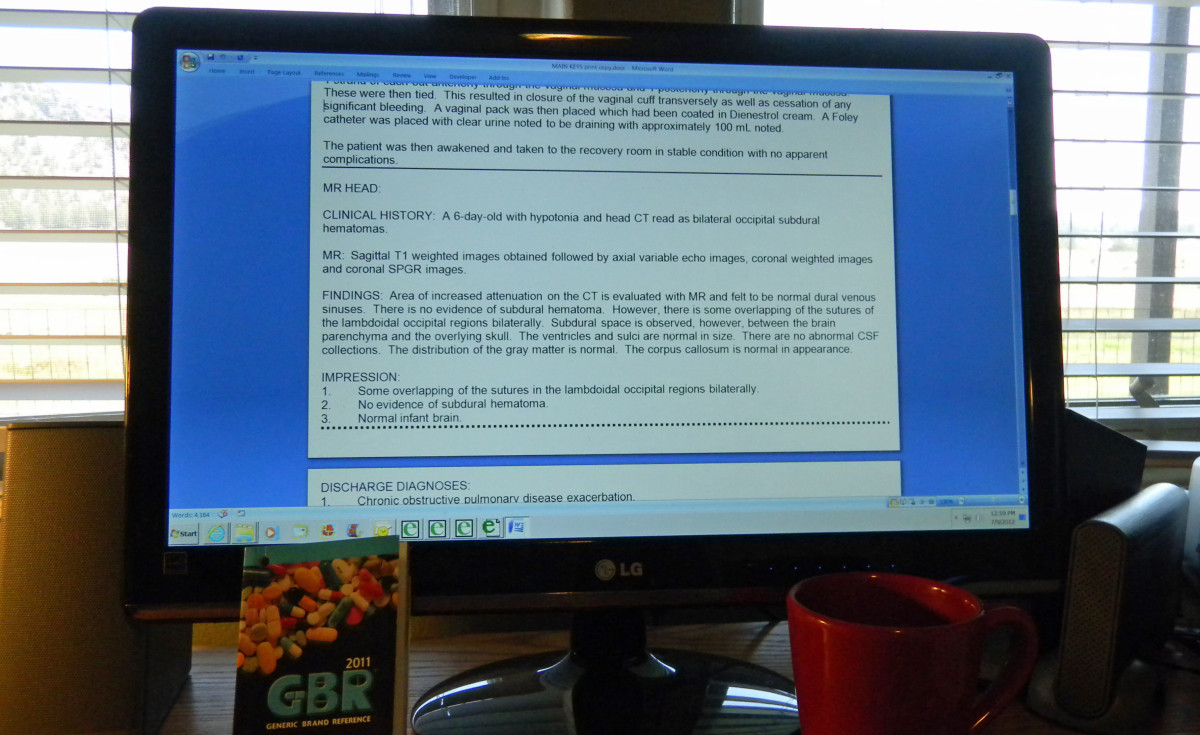Getting That First Oracle DBA Job
New Update: Ebook Is Available
In the 5 years since I wrote this advice for new Oracle DBA's, I learned so much more. In response to the demand for this information, I have decided to write "Landing Your First Oracle DBA Job"
This isn't a "Lets Learn Oracle" product, but will focus exclusively on how to go from nothing to landing an Oracle DBA job as a new fish. I am spilling every thing I know into it. Interested? Then go get our copy now at http://jamesajr.com/
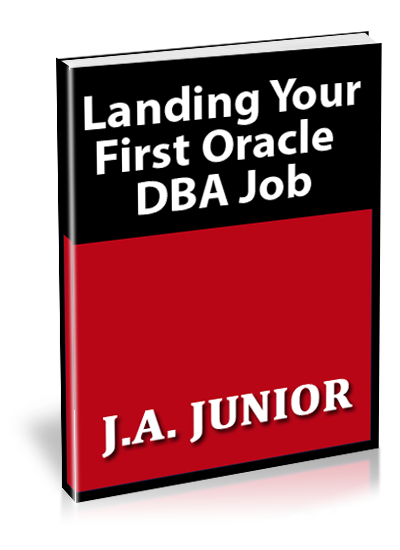
I am an Oracle Certified Professional, and I worked as an Oracle DBA for a major corporation. Before I was an Oracle DBA, I was writing and doing IT related stuff on the side. I became frustrated at the amount of money that I was pulling in, so I went online to check the current salary averages for different IT occupations. I was amazed to see that, according to Payscale.com, Oracle DBA's command an annual salary from $56,000 to $118,000. From that point on, I made up my mind that I was going to become an Oracle DBA.
Getting that first DBA job is rough; the problem is that nobody wants to hire an inexperienced DBA. It is a paradox almost, you cannot get a job without experience, yet you can get experience without the job. Taking the certification tests and studying the books is one thing, actual fieldwork is an altogether separate issue. When I took the tests to become Oracle certified, I constantly studied groups of questions that were on previous tests. Inevitably, some of those exact same questions were on the tests when I took them. This part of becoming an Oracle DBA is where you learn the concepts of database administration. You learn what Oracle is, what a database is comprised of, and how it operates. Once you get the fundamentals down and pass the tests, practice with a bunch of dummy databases. Concentrate on the following things:
1) Installing Oracle Database 8,9,10 - many new DBA's do not learn how to install Oracle because they think it is easy and that they will not be doing many installs. The fact is that learning how to install Oracle Database on a multitude of different operating systems is a valuable skill. You should practice doing the installs on operating systems such as Unix, Linux, AIX, Windows, and Sun Solaris. Also, be sure to practice installing older versions of Oracle such as 8i and 9i. These might be old versions but many databases are still using them. I was surprised at how many servers were running 8i when I started my first DBA job. I was a little worried because I had no prior experience using Oracle 8i. I knew nothing about the install requirements so I had to wing it as I went along.
Things turned out ok, but if I had practiced installing 8i when I was studying, I would have been much better prepared. If you only have one computer, like me, then you can download VMWare Player free and use virtualization to act as a second computer for installing Oracle. You treat the virtual machine as if it was just another computer, only you can access it from your Windows machine. It is a good idea to read over some of the installation and operation documents on VMWare's website in case you haven’t used virtualization before. A very useful site that I use just for this purpose is Easy VMX Creator. It is a site that can generate a virtual machine for you that is then loaded into VMWare; the best part is that you can fill out all the options at your discretion. It lets you specify the size of the hard drives you want on the virtual machine, as well as the memory and the Guest O/S version. After filling out all the info, you can just submit it and the site generates a zip file that you can then download to your computer and start it up with the VMWare Player. You can use virtualization for sharpening all of your database skills in fact. It is even possible, I know because I did it, to setup a 2-node Oracle RAC environment using an external IEEE1394 hard drive as the shared storage. You can setup the whole environment using VMWare Virtual Machines for each of your nodes. Beware though; this setup makes a significant impact on your computer's performance. You should only setup one virtual machine at a time unless your computer is very fast and has a lot of RAM to work with.
2) Import/Export - I cannot emphasize these tools enough. Newer versions of Oracle have newer tools called Data Pump Import/Export. It is just like the regular version but only more robust. Their outputs are NOT compatible however, so if you export with regular export then you must import with regular import. When you are working as a DBA in a production environment where you are managing 5 to 10 servers, each will probably have a dozen or so databases on them. This is a large-scale production environment. There will generally be some test databases, some development databases, and of course some production databases. Database refreshes will be very common. Quite often, you will be asked to import a dump file (name used for the output of the export tool) of one of the test databases into one of the production databases. This could be for any number of reasons, maybe one of the developers "blew up" the database, an affectionate term for rendering the database useless, and he needs to bring it back to a previous state. Import/Export is the perfect utility for this, so you should learn it and become familiar with its use. Learn all the different parameters that better facilitate the Import/Export process. Most environments that have a team of DBA's working on them will usually have a set of shell scripts located somewhere on the server to automate things like refreshes and restores. You would be doing yourself a favor if you went online and looked at a few examples of some of them, knowing the basic layout of a shell script will help you adapt to anything new.
3) RMAN - Recovery Manager is one of the reasons that Oracle is still going strong. No other database software, at least in my opinion, can come close to the power of RMAN. Yet it is simple to use, well the commands are simple anyway, learning how it functions is quite a bit more complicated. Depending on the methods of the DBA's where you work, you might not even have to worry about ever using RMAN. Some DBA's just use Import/Export and that is it. Some accounts do not call for anything more or simply do not want to pay for the labor involved. Regardless of whether or not you will use it at your work place, learning RMAN is an investment in your future. It is a marketable skill and looks great on your resume. Many people say they know how to use RMAN but when it really comes down to it, they know very little. The more you know about RMAN, the better, plain and simple.
4) Oracle Enterprise Manager - also known as OEM for short. OEM is a nifty little tool that can do many things, including making your life easier. Being that OEM is a graphical display; you can do all kinds of administrative tasks with a few clicks of a mouse that would normally require you to write out multiple lines of SQL code. You can use OEM as a starting point whenever you want to do anything to the database. It has some nice performance analysis tools that you can use to see how the database is performing on a regular basis, in real time. OEM has a couple versions. Database Control is OEM for a single database on a single server. Grid Control, its newest feature, can be used to administer multiple databases on multiple servers all from one screen. As you could probably imagine, Grid Control is also a marketable skill and it pays to learn the ins and outs of it.
5) Unix Commands - Often overlooked, this seemingly minor skill can have a drastic impact on your work as a DBA, as well as your reputation. When I first started learning Oracle, I had hardly ever used Unix in my life. Note that when I use the word Unix, I mean all variations of it (Linux, AIX, Solaris etc.). Thankfully, I learn new things very quickly. With a bit of studying and practicing with VMWare, I was using Unix commands like a true veteran in a few weeks. If the Oracle databases that you will be working are on Unix based servers, and there is a great chance they will be, then you will need to learn a bunch of commands to assist you in navigating your way through the directory structure. I am not going to start listing them here, but the few basic ones you should start with are ones like ls, cp, cd, rm, vi, more, ps, and top.These are the just a few basic commands but they are vital to an Oracle DBA. The best thing to do is buy the Unix for Oracle DBA's Pocket Guide from Amazon; it is an immensely useful resource. I cannot tell you how many times I have had to leaf through that book to find a certain command or option that I wanted to use. It is specifically for Oracle DBA's and you cannot beat it for $9.95.
Of course there are a million different things that you can work on to become a great Oracle DBA, but the above suggestions will help you build a solid foundation. Once you have your Oracle Certification and have become somewhat proficient at the basics you can then start applying for Oracle DBA jobs. Job seeking is always an uphill battle so do not get discouraged. The more interviews you get under your belt the better you will become at answering the employer's questions. Expect to hear no, or rather nothing at all, many times before getting a real shot at a job. You would have laughed your head off if you had heard my first interview. It was a telephone interview; many initial interviews are on the phone so employers can weed out the weak candidates without having to waste anyone's time. I was as green as a dollar bill, but eager to get the job. The employer was looking for a DBA with good performance tuning skills, something that I (or many other DBA's) did not possess at the time. One thing I learned from scaling the Oracle job market is that employers frequently do not know what they want; they just know that they need an Oracle DBA. Therefore, what they do is copy and paste a bunch of desired skills from other company's job ads and try to customize it for their own ad. Therefore, what you should do is apply for any position that has the words Oracle Database anywhere in the description. The number of them that just need a regular DBA, but don't write that in their ad, will amaze you.
When I first got on the phone with the interviewer, he said there were multiple people in the room and that I was on speakerphone. Great, as if I was not nervous enough. They asked me question after question and I bombed, mostly because I was a fish out of water, and wanted to impress. There is a first time for everything, so I cut myself some slack and moved on. I went through another three interviews before I got my first position. I learned that you must prepare yourself to answer basic questions about Oracle. What employers will do is copy questions from a website or book that they read, one that details how to conduct an Oracle interview. All you have to do is the same thing, find all the questions you can and write them down. I wrote them on 3x5 index cards, the question on the front and the answer on the back. They will ask what a redo log is, what a deadlock is, what to do first if the database is slow, and things of that nature. Take your flash cards and run through them until you can recite the answers verbatim. You will find yourself eager to answer their questions once you get in the interview, this is confidence. When you are confident in a job interview, it will show, and employers want to hire confident people, not someone who is afraid to talk because they might make a fool of themselves.
There are many places online where you can seek employment as an Oracle DBA. The popular ones are Dice.com, Yahoo Hot Jobs, Monster.com, and Indeed. You should sign up for free member accounts at these sites, and post your resume for prospective employers and recruiters to read. Be careful what you wish for though, if you do not want a million recruiters calling your house everyday then don’t make your phone number public. If you like, you can request that all responses be by email only. Whatever makes you comfortable.
Do yourself a favor and utilize the free resume writing resources that most of the job sites have these days. With all the free knowledge available, there is no excuse for a poorly written resume any longer. Make sure you submit a concise, well-written resume without grammatical and spelling errors. Employers will dismiss your resume once they see a spelling mistake, without giving it a second thought, so make sure you proofread your resume well. You should also have someone else read it before you submit it; another pair of eyes is sometimes the best prevention tool.
When it comes down to it, you can achieve anything you want if you really put your mind to it. A career as an Oracle DBA is something to be massively proud of, and there is no reason why you cannot have it. I hope this article has helped you in your quest to become an Oracle DBA, even if in just a small way, and I wish you the best of luck on your journey.
Oracle Resources,Blogs and Forums
- DBA FYI Center
A resource center for database administrators (DBA). It includes latest DBA job opportunities, DBA technical articles and DBA job interview questions and answers. - Computer, Tech & IT Jobs Search, Careers, Employment, Postings @Tech-Centric.net technology job
Search Computer jobs, Tech jobs, IT Jobs, IT Employment postings & hot IT careers @ Tech-Centric.net. Post your resume & find networking, telecom, consulting, telecommunications, technical it manager, it analyst, system engineer, software eng - OraFaq's
Questions,Answers,Tutorials,Documentation,Scripts and more from this great Oracle resource. I learned alot from this site. - ORACLE-BASE
Oracle DBA and development articles, scripts, HOWTOs and forums (8i, 9i, 10g, 11g)


